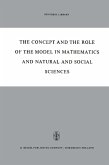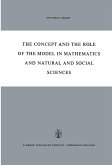The sciences are too important to be left exclusively to scientists, and indeed they have not been. The structure of scientific knowledge, the role of the sciences in society, the appropriate social contexts for the pursuit of scientific inquiry, have long been matters for reflection and debate about the sciences carried on both within academe and outside it. Even within the universities this reflection has not been the property of any single discipline. Philosophy might have been first in the field, but history and the social sciences have also entered the fray. For the latter, new problems came to the fore, since reflection on the sciences is, in the case of the social sciences, necessarily also reflection on themselves as sciences. Reflection on the natural sciences and self-reflection by the social sciences came to be dominated in the 1960s by the term 'positivism'. At the time when this word had been invented, the sciences were flourishing; their social and material environment had become increasingly favourable to scientific progress, and the sciences were pointing the way to an optimistic future. In the later twentieth century, however, 'positivism' came to be a word used more frequently by those less sure of nineteenth century certainties. In both sociology and philosophy, 'positivism' was now something to be rejected, and, symbolizing the collapse of an earlier consensus, it became itself the shibboleth of a new dissensus, as different groups of reflective thinkers, in rejecting 'positivism', rejected something different, and often rejected each other.
Hinweis: Dieser Artikel kann nur an eine deutsche Lieferadresse ausgeliefert werden.
Hinweis: Dieser Artikel kann nur an eine deutsche Lieferadresse ausgeliefert werden.








